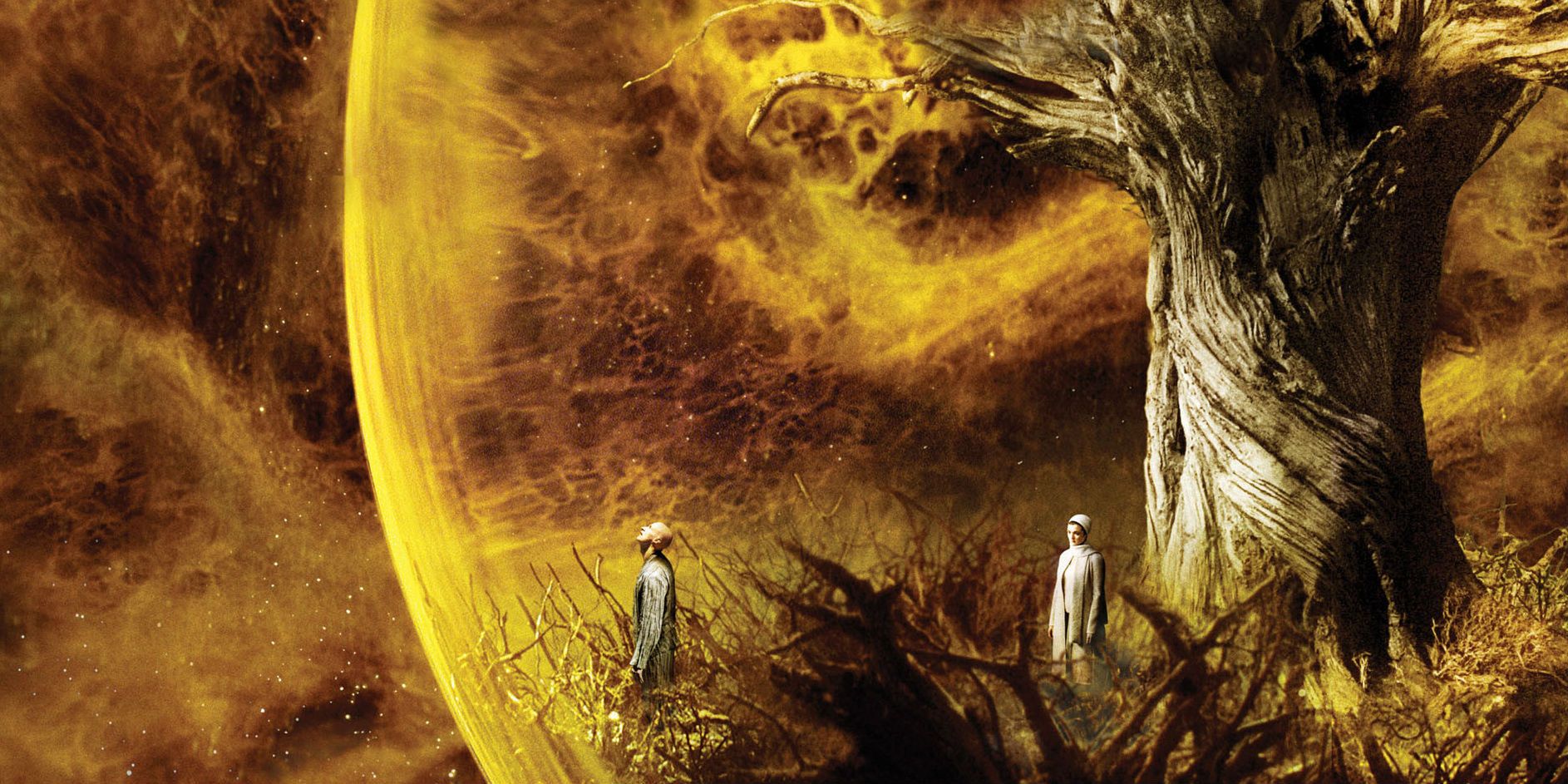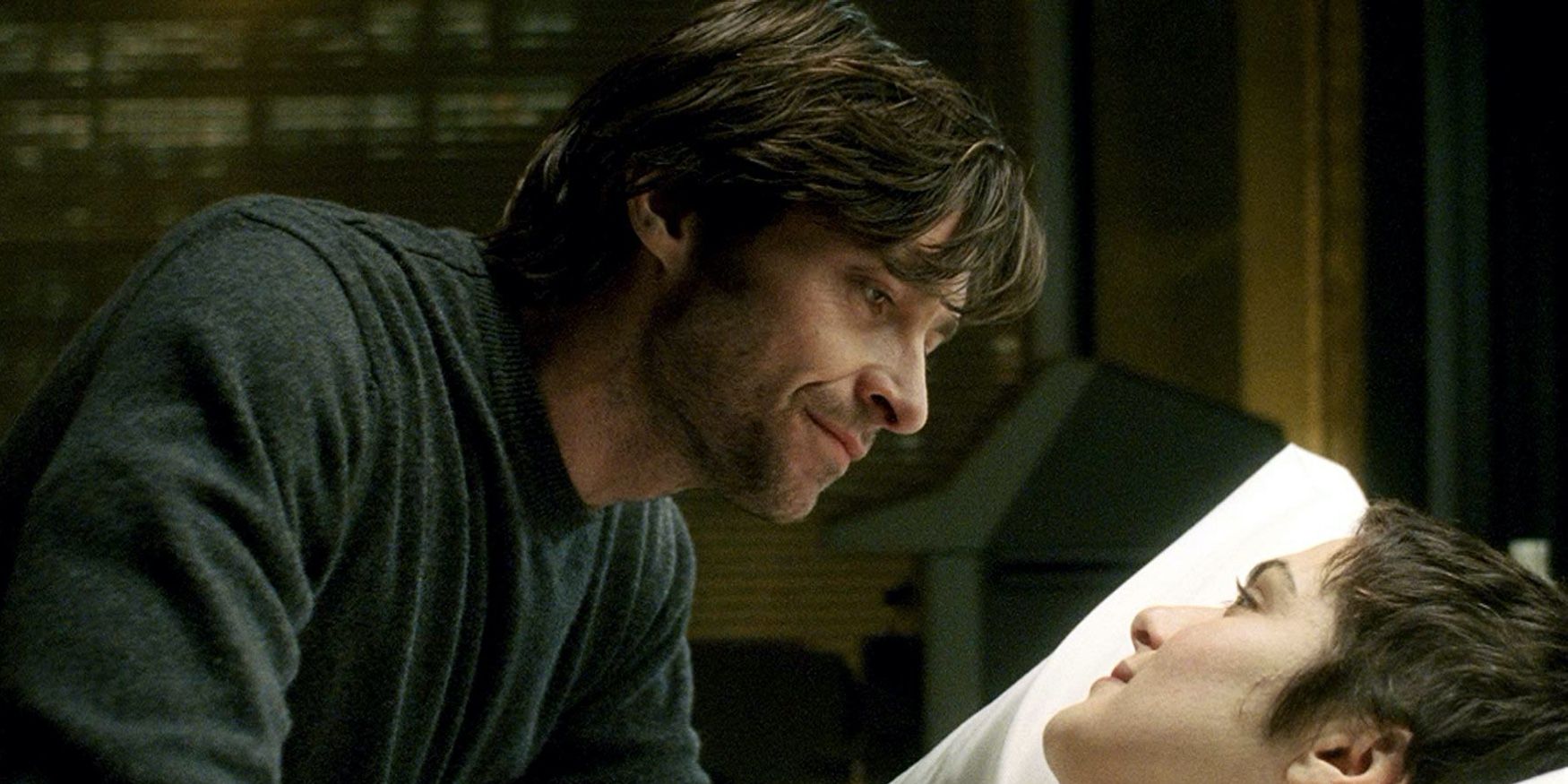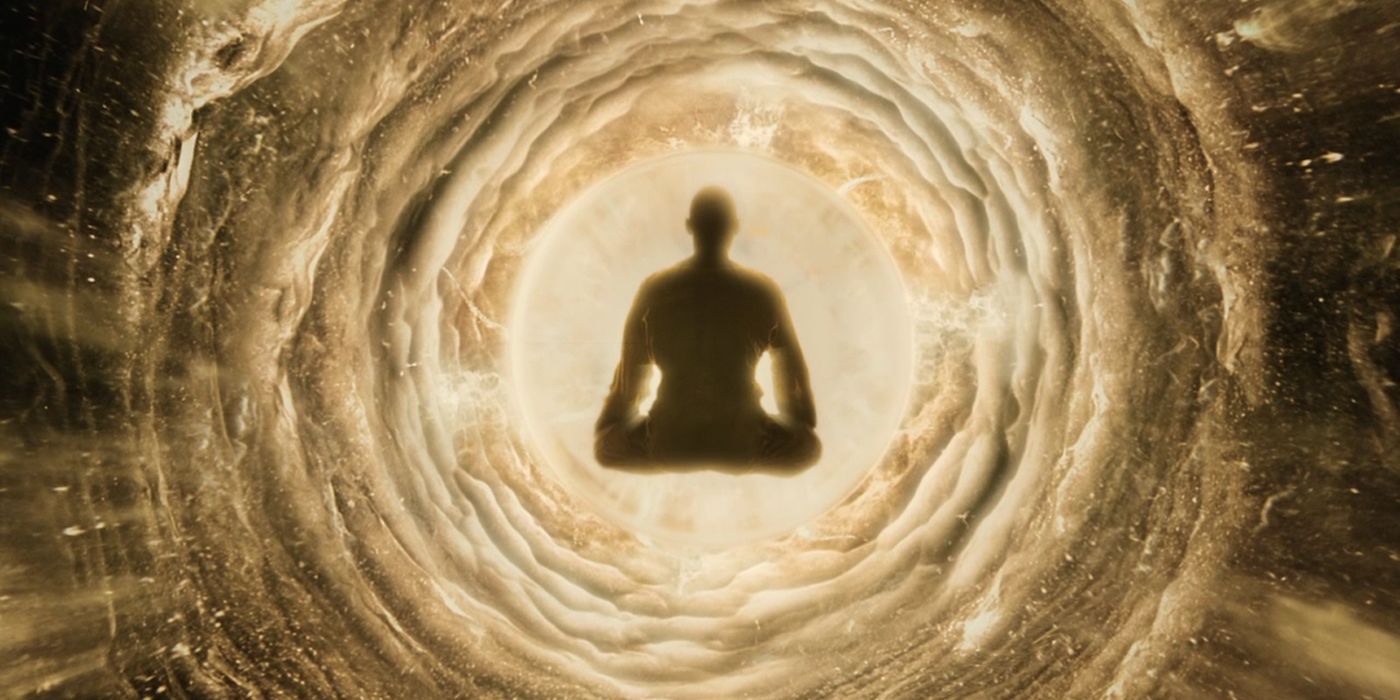This movie is very original and the filmmakers are technically competent, but it's much too bizarre and confusing to be very enjoyable.
Watching The Fountain is kind of like eating a breakfast burrito from one of those 24-hour drive-thru places. You have to digest it for a while before you realize its full impact on you. To be honest, I kind of feel guilty that I didn't give this movie a better rating. After all, it was directed and co-written by Darren Aronofsky, whose last directorial effort was Requiem for a Dream. That movie was rough, to say the least, but it was also riveting. Six years later, his follow-up seems to fall squarely into the "artsy-fartsy" category. Don't get me wrong; I have immense respect for Aronofsky because he has clearly dedicated himself to making movies that matter to him, as opposed to movies that appeal to the masses. I also respect his ability to make intelligent and thought-provoking movies. The problem with The Fountain is that it suffers from an extreme overdose of subtlety and symbolism. I had to struggle to figure out what the heck was going on most of the time. There is nothing wrong with being a little artistic with a movie or telling the story in a unique way that challenges the viewer, but when I have a hard time following the storyline and there's a look of confusion on my face even after it's over, that's a problem.
Normally, this is the part of the review where I tell you who the characters are and where/when the story is set. In this case, that's going to be a little difficult, but here goes. There are three separate storylines, all featuring the same two main characters. The first storyline is set in Spain during the Spanish Inquisition, around the year 1500. Queen Isabella (played by Rachel Weisz) has been identified as a target of the Inquisition, and most of her followers have been put to death. She comes to the realization that she will soon be put to death as well, so she calls upon a conquistador named Tomas Creo (played by Hugh Jackman) to go on a quest for her. She wants Tomas to find a legendary tree whose sap provides eternal life. That way, as she puts it, "we can live forever and ever." The quest does not appear to be a very difficult one for Tomas in terms of distance, but he encounters significant opposition along the way, even from his own people. Will he be able to find the tree, extract some of its sap and bring it back to Queen Isabella, allowing both of them to live forever? For me, this was probably the most coherent and compelling story, at least until the end. However, I was puzzled by the inclusion of obvious historical inaccuracies. For starters, Queen Isabella and her husband, King Ferdinand, were the instigators of the Spanish Inquisition, meaning she wouldn't have had a relationship with a conquistador and she wouldn't have been a target of the Inquisition. Plus, the real-life Isabella would have been 49 years old in 1500; Rachel Weisz was 33 during the filming for this movie, and she did not appear to be playing "older."
The second storyline is set in present-day America. Tommy Creo is a research scientist whose wife, Izzi, is dying of cancer and doesn't have much time left. Instead of spending that time with her, Tommy pours himself into his work, spending nearly every waking hour trying to find a cure for cancer so he can save Izzi's life. After a while, he calms down and starts to spend more time with her. He starts to discover things about her that he never knew before, including her interest in astronomy and the fact that she is working on a book called The Fountain whose last chapter has yet to be written. Tommy ends up trying an experiment on a laboratory animal that has promising results, but will he be able to save Izzi before she succumbs to cancer?
The third storyline is set in space, around the year 2500. Tom has apparently decided to shave his head, and he is using a space capsule to bring a tree into space with him. It sounds weird, but it will make a little more sense to you after seeing the film. It's tempting to explain how everything ties together, but even after seeing the film, I'm not 100% sure of that myself. Plus, I don't want to give away any crucial plot points.
Despite my misgivings about this film, it is quite well-made. There is nothing amateurish about it; the technical competency is definitely there, often to the point of seeming inspired. Jackman and Weisz play their characters very well, especially considering the different social nuances of each time period, not to mention the fact that they have to do different accents throughout the movie. (I kind of wondered why the Spanish Inquisition storyline had some people speaking English with a British accent, but I suppose that's a minor quibble.) At its core, The Fountain is a simple love story, but you can always depend on Aronofsky to make a multi-layered, complex film about even the simplest storylines. Some will be frustrated by that approach; others will be enthralled. I suppose I'm somewhere in between. I was frustrated by the movie's "abstract painting" approach, but it was so unique and ambitious that it didn't quite lose me amidst all the confusion. I'm sure different people will have different reactions and interpretations with regard to this film, but there were two main points I took away from it:
- True love knows no bounds, not even those of time.
- Eternal life does not manifest itself the way we might expect.
Whenever I see a movie that's intended to cater more to the movie-going masses, my typical response is that it's not intellectually challenging enough; it feels too "dumbed down." This film seemed to be at the opposite extreme — so intellectual and symbolic that I had a hard time following it. I appreciated how the film challenged me as a viewer and didn't make me feel like my IQ was less than my shoe size, but at the same time I really wish the film had been more "accessible" to me, for lack of a better term.
Bottom line, Aronofsky's movies are entertaining in their own unique way, but they don't exist solely for that purpose. They have something to say that is meaningful and personal to Aronofsky himself. Indeed, it would be difficult to accuse him of compromising, or of "selling out," especially since this is only his third feature film in eight years. As with his other films, The Fountain is a labor of love for Aronofsky, and it shows. If you prefer intellectual and challenging fare, by all means, go and see this one. But don't expect to clearly understand what it's trying to say after the first viewing, or even the second. Aronofsky doesn't make it that easy for the audience. He never has.



